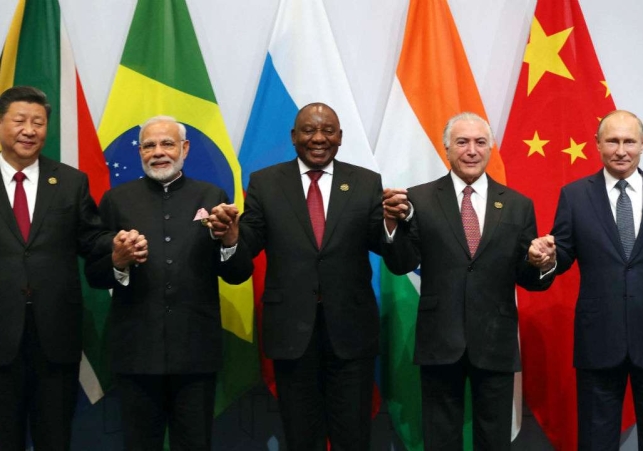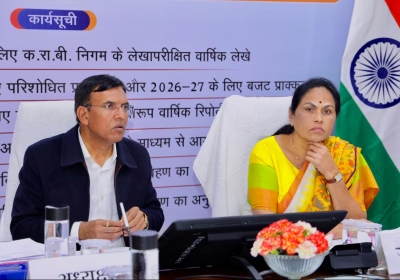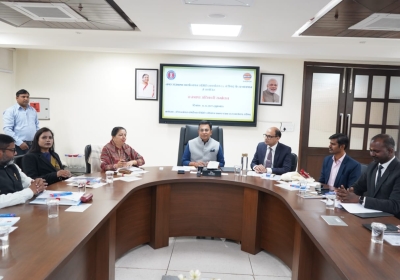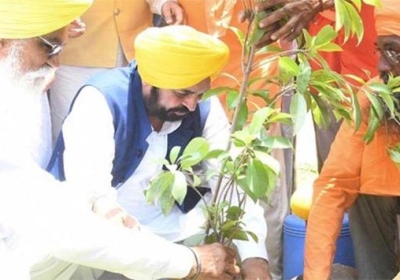
BRICS summit convenes to fortify geopolitical impact
BRICS summit convenes to fortify geopolitical impact and Debate Membership Expansion
BRICS Leaders Gather to Strengthen Geopolitical Influence Amidst Expansion Debates
BRICS, consisting of Brazil, Russia, India, China, and South Africa, is set to convene in South Africa to explore strategies for transforming their collective economic might, accounting for a quarter of the global economy, into a geopolitical force capable of challenging Western dominance. However, Russian President Vladimir Putin, facing an international arrest warrant related to alleged war crimes in Ukraine, will be absent. A central point of contention revolves around expanding BRICS membership to include other nations from the "Global South," despite differing opinions within the bloc.
As BRICS nations seek to solidify their geopolitical influence, the debate over expansion is paramount. China, engaged in a geopolitical rivalry with the United States, is enthusiastic about enlarging BRICS swiftly. Meanwhile, Brazil expresses concerns that further expansion could dilute the club's standing. Approximately 40 nations, including Saudi Arabia, Argentina, and Egypt, have expressed interest in joining BRICS, formally or informally, heightening the importance of this discussion.
China voices its support for membership expansion, welcoming "like-minded partners" to join BRICS early on. Russia, facing diplomatic isolation due to the Ukraine situation, and South Africa, its significant African ally, are motivated to extend membership to counterbalance this isolation. India's stance remains uncertain, adding complexity to the expansion discourse.
Also Read: Afghan Women's Rights Advocate Confronts Taliban (arthparkash.com)
Emphasis on Africa and Multilateral Inclusion
The 15th BRICS summit's theme, "BRICS and Africa," reflects the bloc's intention to foster connections with Africa. This continent is increasingly becoming a stage for global power competition. South Africa's foreign minister emphasized BRICS' aspiration to address the needs of the Global South in multilateral systems, challenging Western dominance in global governance.
BRICS nations aspire to present themselves as alternative development partners to Western powers. The New Development Bank (NDB), established by BRICS, seeks to offer a financing alternative and de-dollarize transactions. However, the NDB has encountered challenges, having approved significantly fewer loans than traditional institutions like the World Bank. Climate change is also on the agenda, with BRICS countries advocating for developed nations to take a greater role in decarbonizing the world's energy supply.
Despite differing opinions on expansion, the bloc is committed to projecting collective strength and reforming global governance to increase representation of developing countries. While BRICS' carbon-intensive members collectively account for about 40% of global population and greenhouse gas emissions, discussions on climate change may take a back seat. Nonetheless, the bloc holds rich nations accountable for most global warming and seeks their commitment to decarbonization efforts.
Also Read: Germany approves draft law legalizing cannabis use (arthparkash.com)
The BRICS summit brings together nations aiming to harness their collective economic power to drive geopolitical influence. Expansion debates highlight diverse perspectives, with China advocating for quick enlargement while Brazil is more cautious. This meeting also underscores the bloc's commitment to multilateral inclusion, alternative development models, and addressing global challenges. As BRICS leaders converge, they strive to reshape the geopolitical landscape and promote a more balanced global order.





